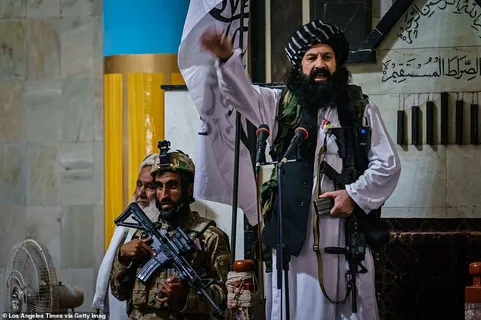by Maryam Noureen Janjua
The killing of Khalil al-Rahman Haqqani, the Taliban’s Minister for Refugees and Repatriation, at the hands of ISIS (Islamic State of Khorasan Province or ISKP), underscores the growing and evolving security dilemma facing Afghanistan. This assassination, carried out by a terrorist group that the Taliban had previously tolerated, reflects not only the challenges that the Taliban faces in asserting control over the country but also the wider risks posed by extremist groups operating with impunity in the region. At the same time, it alarms the regional security paradigm which has gone into jeopardy in the post Taliban takeover of Kabul.
Afghanistan’s stability has always been fragile, but the current geopolitical landscape—marked by both external and internal pressures—has made the country more susceptible to a deteriorating security environment. The Haqqani assassination highlights a deeper issue: the strategy of harboring or tolerating terrorist groups, like the Tehrik-i-Taliban Pakistan (TTP) and ISKP, is a grave miscalculation that could have devastating long-term consequences. As history has shown, groups that were once allies or tolerated for strategic reasons often evolve into existential threats. Since IAG aims to get global recognition, the intra-Taliban war and threat of like minded Jihadist groups indicate a serious problem ahead.
The Taliban’s initial tolerance of groups like TTP and ISKP was driven by short-term goals, including the desire to ensure internal stability and strengthen their hold over Afghanistan’s vast and varied territories. However, this strategy has been proven to be flawed. By allowing groups like the TTP, whose interests often diverge from those of the Taliban, to operate in Afghanistan, the Taliban has inadvertently sowed the seeds for future conflicts. More significantly, by offering sanctuary to ISKP, the Taliban exposed the country to the growing threat of the Islamic State’s local affiliate.
ISIS, a rival to the Taliban in its quest for an Islamic state, has shown no hesitation in targeting Taliban leaders and institutions. The killing of Haqqani, one of the Taliban’s senior figures, was a stark reminder that ISIS views the Taliban as a direct competitor. In the context of Afghanistan’s security, this illustrates the self-destructive nature of alliances with terrorist organizations. In these situations, alliances are inherently unstable and often short-lived, with one faction eventually turning on the other. What is most concerning is that the Taliban’s attempts to negotiate with or neutralize these groups have failed, leaving Afghanistan vulnerable to both internal fragmentation and external interference.
The safety and security of Afghanistan are currently held hostage by various terrorist organizations, many of which operate within the country with impunity. ISKP’s expansion, TTP’s resurgence, and the broader presence of Al-Qaeda affiliates pose a severe threat to Afghanistan’s stability. These groups do not recognize national borders or allegiances, making it even harder for the Afghan government to establish control over its territory. This threat is not limited to Afghan Taliban but creates a security threat for the neighbouring countries especially Pakistan.
The death of Haqqani is a critical juncture. It underscores the urgency for the Islamic Emirate of Afghanistan (IAG) to confront the reality of this crisis. Taliban are owning and ruling a whole country and need to adopt statesmanship to live with the international order. Rather than denying the presence of these groups or attempting to appease them, the IAG must act decisively to curb their activities. The longer these groups are allowed to operate unimpeded, the greater the risk of Afghanistan descending into further chaos, with devastating consequences not just for the country, but for the entire region.
Afghanistan’s safety is not the only issue at stake in this scenario. The Haqqani killing represents a significant shift in the balance of power within Afghanistan. For years, the world has been urging the Taliban to rein in these groups, emphasizing that the stability of Afghanistan is inseparable from the stability of the broader region. The current reality, in which the Taliban seems to be caught in a web of competing interests, underscores the need for both countries to cooperate more effectively to combat terrorism. The fact that the same groups that once operated freely in Afghanistan are now targeting the Taliban itself is a wake-up call.
The struggle against terrorism is long and difficult. The current situation in Afghanistan calls for a united effort to break the cycle of alliances and betrayals that have plagued the country for decades. The Taliban’s relationship with groups like the TTP and ISKP is a double-edged sword. While they may have initially seen these groups as tools to solidify their power, the same groups now pose an existential threat to the Taliban’s rule. As such, decisive action is required to curtail these groups’ influence in Afghanistan. The future of Afghanistan depends on the IAG’s ability to abandon denial, recognize the threats it faces, and take decisive steps to neutralize these groups.

